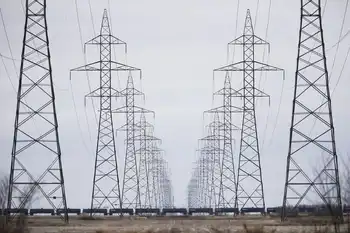Undercurrent of doubt over electric motors
By The Independent
Substation Relay Protection Training
Our customized live online or in‑person group training can be delivered to your staff at your location.

- Live Online
- 12 hours Instructor-led
- Group Training Available
The idea that a wholesale switch to electric transport would automatically reduce CO2 emissions and dependence on oil is a myth, says the analysis prepared for the Environmental Transport Association (ETA).
In fact, says the report, a loophole in EU vehicle emissions regulations means the more electric cars produced, the more auto manufacturers can produce gas-guzzling vehicles such as SUVs while still hitting their overall emissions targets. Ultimately, this would lead to an increase in the amount of oil used and the amount of CO2 generated by the car fleet as a whole.
With transport CO2 emissions in Britain representing about a quarter of the total, electric vehicles have been enthusiastically embraced by policymakers as one of the principal ways of cutting the sector's contribution to climate change.
The Committee on Climate Change, the official watchdog which monitors the Government's progress towards its climate objectives, suggested last year that pure electric and hybrid petrol-electric vehicles could help contribute to "deep emissions cuts", and if Britain were to hit a really high target of cutting carbon by 42 per cent by 2020, 40 per cent of the cars on the road – nearly 11 million vehicles – would have to be either battery-driven, or hybrids. This year the committee suggested a more realistic aim of putting 1.7 million electric cars on the road by 2020.
Yet all this is not the panacea some people think it is, says the new report from the ETA, a green campaigning and lobby group which also provides breakdown services. Although there are significant potential benefits to be had from a switch to electric vehicles, the group argues, these are wholly dependent on changes in the way electricity is generated, energy taxed and CO2 emissions regulated.
It is already known that widespread uptake of electric cars would mean much more electricity demand, with the possible consequence of building more – possibly coal-fired – power stations. A separate piece of research last year suggested that, if all Britain's 27 million cars went electric, and were charged every day, the electricity supply would have to quadruple to cope with the new demand.
The ETA report stresses that electric cars are only really green if they are using electricity produced by renewable energy systems such as wind power. And it goes on to point out that, under new binding EU targets for cutting car CO2 emissions agreed last December, carmakers can sell up to 3.5 SUVs for every zero-carbon electric vehicle they sell and still reach their official EU target.
"While the report is not intended to dampen enthusiasm for electric vehicles, their introduction should not be viewed as a panacea," said the ETA's director, Andrew Davis. "Significant changes to the way we produce and tax power are needed before we will reap any benefits."











